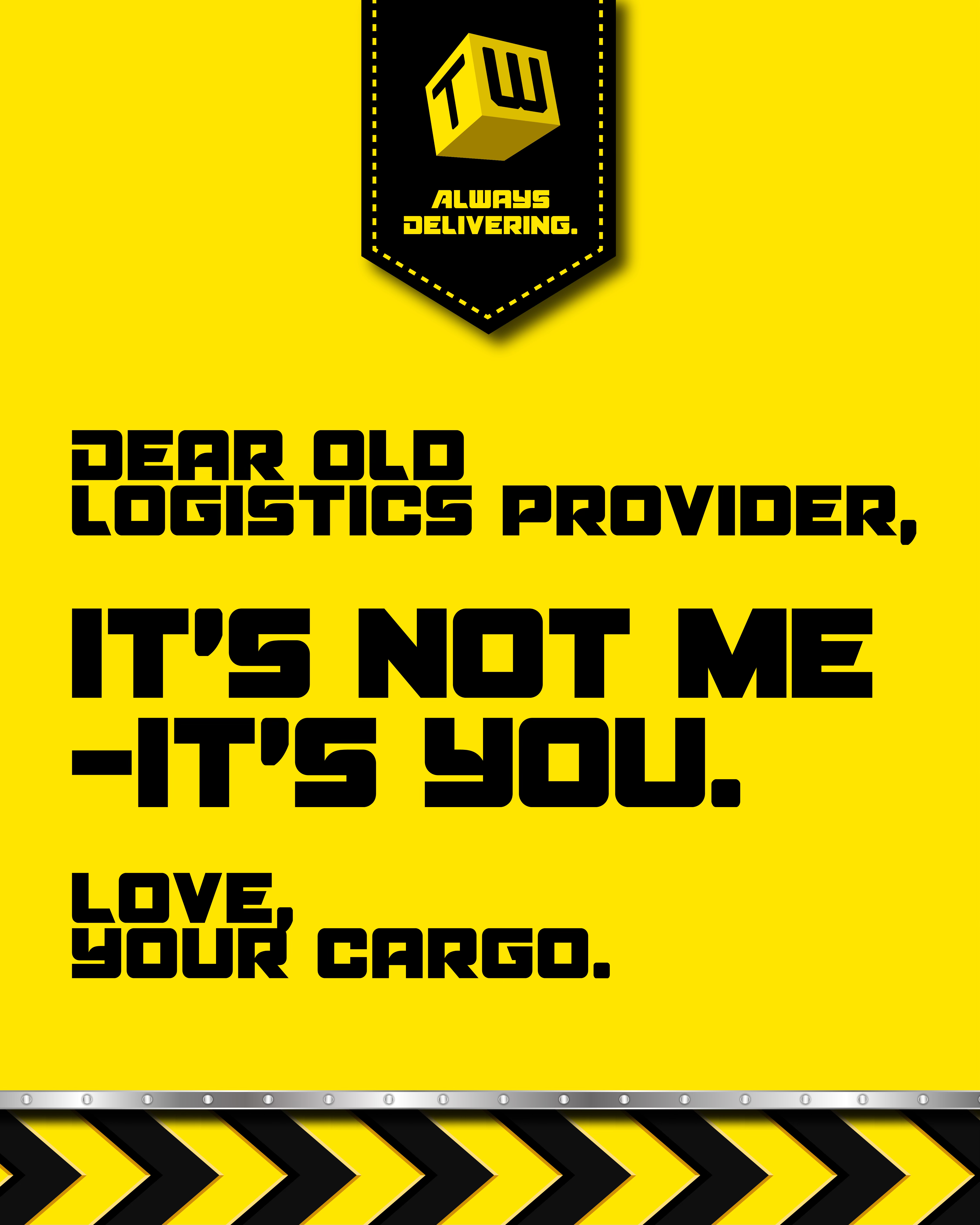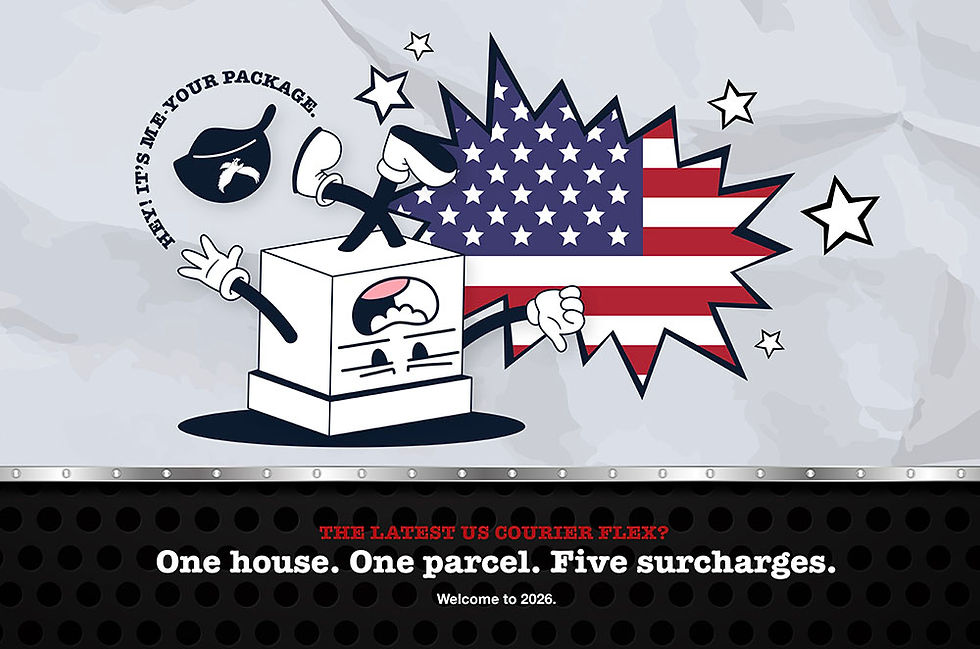Public Sector & Government Logistics Best Practices: Efficiency, Compliance, and Security
- Danyul Gleeson

- Mar 20, 2025
- 6 min read
Updated: Mar 23, 2025
Government logistics isn’t your typical “get it there fast” operation—it’s a high-stakes game where efficiency, compliance, and security are the stars of the show. Whether it’s moving sensitive documents, medical supplies, or large-scale infrastructure materials, the public sector faces unique challenges that demand precision and expertise.

In this blog, we’re breaking down the best practices that keep government logistics running like clockwork. From managing tight budgets to meeting stringent compliance requirements, we’ll explore how the right strategies—and a logistics partner like Transport Works—can make all the difference.
The Challenges of Government Logistics
When it comes to public sector logistics, the stakes are higher than ever. Here’s what you’re up against:
Budget Constraints: Government agencies must achieve maximum efficiency without blowing the budget.
Compliance Overload: Strict regulations and oversight mean there’s no room for error.
Security Risks: Sensitive goods and data require robust security measures at every stage.
Complex Supply Chains: Coordinating across multiple departments, vendors, and locations adds layers of complexity.
Public Accountability: Every move is under the microscope, so transparency is key.
Best Practices for Public Sector & Government Logistics
Prioritize End-to-End Visibility
Visibility is the backbone of efficient government logistics. With multiple moving parts, including suppliers, contractors, and internal teams, having a clear, real-time view of your supply chain is essential. Advanced logistics software can track shipments, monitor DIFOT (Delivery in Full, On Time) performance, and flag potential delays before they become problems. End-to-end visibility also enhances accountability and transparency—critical for public sector operations.
Explore how Transport Works can provide real-time visibility with our Supply Chain Management services.
Streamline Supply Chains with Technology
The public sector has no time for clunky, outdated processes. By leveraging cutting-edge logistics software, you can automate repetitive tasks like inventory tracking, order fulfillment, and route optimization. Automation reduces manual errors, speeds up operations, and frees up resources to focus on strategic priorities. Plus, integrating KPI dashboards helps decision-makers analyze performance and make data-driven choices on the fly.
Discover how our KPI Reporting Technology can streamline your operations.
Adopt a Compliance-First Mindset
Compliance is non-negotiable in government logistics. Ensuring that every shipment, contract, and process aligns with regulations is crucial to avoid penalties and maintain public trust. Automated compliance checks, detailed audit trails, and regular training for your team can help meet these standards effortlessly. A trusted logistics partner with expertise in compliance management, like Transport Works, can be invaluable in staying ahead of regulatory requirements.
Learn more about our compliance solutions under Logistics & Distribution.
Build Redundancy into Supply Chains
Government logistics must remain operational even in the face of disruptions, such as natural disasters, strikes, or cyberattacks. Building redundancy ensures you have backup suppliers, alternative transportation routes, and contingency plans ready to deploy. This proactive approach minimizes delays and maintains service continuity, even in crisis situations.
Find out how Transport Works ensures resilience through Supply Chain Management.
Emphasize Security at Every Step
Public sector logistics often involve the transport of sensitive materials—be it confidential documents, medical supplies, or military equipment. Security measures such as tamper-evident seals, encrypted communications, GPS tracking, and background-checked vendors are non-negotiable. Partnering with a logistics provider experienced in high-security transport adds an extra layer of protection.
Discover how we prioritize security in our Reverse Logistics services.
Optimize Budget Allocation
Government budgets are often tight, so every dollar counts. Conducting regular cost and spend analyses can highlight inefficiencies, identify opportunities for savings, and ensure resources are allocated to the areas that deliver the most value. Whether it’s optimizing freight routes, consolidating shipments, or renegotiating vendor contracts, a strategic approach to budgeting pays off in the long run.
Check out our expertise in Cost Optimization.
Engage Stakeholders Through Communication
Clear and consistent communication with stakeholders is vital for smooth operations. From policymakers and contractors to suppliers and end-users, keeping everyone informed builds trust and ensures alignment. Regular updates, transparent reporting, and collaboration platforms facilitate seamless communication and reduce misunderstandings.
Learn how our Services support effective communication and collaboration.
By adopting these best practices, public sector and government agencies can ensure logistics operations run efficiently, securely, and within budget, all while maintaining public trust and delivering exceptional service. Let me know if you'd like to expand further or refine any of these points!
How Transport Works Can Help
At Transport Works, we understand the intricacies of public sector logistics. Our tailored solutions ensure you’re not just meeting expectations—you’re exceeding them.
Advanced Compliance Tools: Stay ahead of regulations with real-time reporting and automated compliance checks.
Real-Time KPI Dashboards: Monitor performance metrics like DIFOT and security protocols at a glance.
Secure Transportation: From sensitive data to critical supplies, our robust security measures keep everything safe and sound.
Budget-Friendly Solutions: Optimize every dollar spent with our cost-effective logistics strategies.
Customizable Logistics Plans: No two government projects are alike. We create tailored solutions to match your unique needs.
Discover how we make public sector logistics seamless: Services.
FAQs for Public Sector & Government Logistics Best Practices
What are the best practices for improving efficiency in public sector and government logistics?
Improving efficiency in public sector logistics requires a strategic approach to optimize processes, reduce delays, and ensure timely delivery of services. Best practices include leveraging real-time tracking systems, adopting automation technologies, and focusing on route optimization. Public sector organizations must also streamline their supply chain management by integrating cross-departmental collaboration and using data analytics for smarter decision-making.
Learn more about how we optimize logistics for efficiency here.
How can government logistics comply with industry regulations and standards?
Compliance with industry regulations is critical in government logistics to ensure legal and ethical standards are met. Key best practices include maintaining detailed records of transactions, implementing strict security protocols, and regularly auditing processes. Using software that tracks compliance can help public sector organizations stay on top of evolving regulations, such as those related to sustainability and labor laws.
For compliance strategies, find out more about our Supply Chain Consulting.
What role does security play in government logistics, and how can it be enhanced?
Security is paramount in government logistics due to the sensitive nature of goods and information handled. To enhance security, organizations should implement secure supply chain solutions, including encryption, surveillance systems, and access control. Conducting regular security audits and employee training also ensures that security protocols are followed.
Find out how we help strengthen logistics security here.
How can technology improve logistics operations for public sector organizations?
Technology drives significant improvements in logistics efficiency, compliance, and security. Tools such as GPS tracking, automated warehouse management systems, and AI-powered route optimization help reduce costs, streamline operations, and ensure adherence to government standards. By investing in technology, public sector logistics operations can become more transparent, accountable, and responsive to citizen needs.
See how we integrate cutting-edge logistics technology for the public sector here.
What are the key challenges in public sector logistics, and how can they be overcome?
Public sector logistics faces unique challenges such as budget constraints, complex regulations, and the need for transparency. To overcome these challenges, government entities must adopt cost-effective technologies, implement continuous training programs, and foster partnerships with logistics experts to navigate compliance and security concerns effectively.
Read our full breakdown of the common logistics challenges and solutions here.
How can sustainability be incorporated into government logistics operations?
Sustainability is becoming increasingly important in government logistics, especially in light of climate change and public expectations. Best practices for sustainable logistics include using eco-friendly packaging, optimizing routes to reduce fuel consumption, and sourcing from green suppliers. Additionally, government logistics can align with sustainability goals by adopting renewable energy sources for warehouse operations and vehicle fleets.
Check out our guide to sustainable logistics practices here.
How do public sector organizations ensure regulatory compliance in logistics?
Public sector logistics are governed by strict rules and regulations. Compliance is ensured through rigorous monitoring, reporting systems, and adherence to national and international standards.
Find out more about our Tailored Solutions here:
What role does risk management play in government logistics?
Risk management is critical in ensuring that sensitive materials are transported safely and that public safety is never compromised. This includes securing sensitive data, medical supplies, and government materials.
Find out more about our Logistics Solutions here.
How do public sector logistics adapt during emergencies or disasters?
Public sector logistics operations are designed to be flexible and adaptable, with systems in place to quickly mobilize resources during emergencies, ensuring that supplies and services reach affected areas promptly.
Find out more about our Tailored Solutions here.
What are the long-term benefits of optimizing logistics for public sector agencies?
Optimizing logistics operations in the public sector offers long-term benefits such as cost savings, improved service delivery, enhanced security, and better compliance. Additionally, streamlined logistics processes can lead to faster response times during emergencies, increased transparency in operations, and improved citizen satisfaction.
Learn more about the benefits of optimized logistics for public sector organizations here.
Why Government Logistics Needs a Trusted Partner
When public trust is on the line, there’s no room for shortcuts. By partnering with experts who understand the nuances of government logistics, you’ll gain the confidence to deliver on time, on budget, and with complete security. At Transport Works, we pride ourselves on helping government agencies streamline their logistics, achieve compliance, and exceed expectations. Ready to elevate your logistics game? Let’s make it happen.





Comments